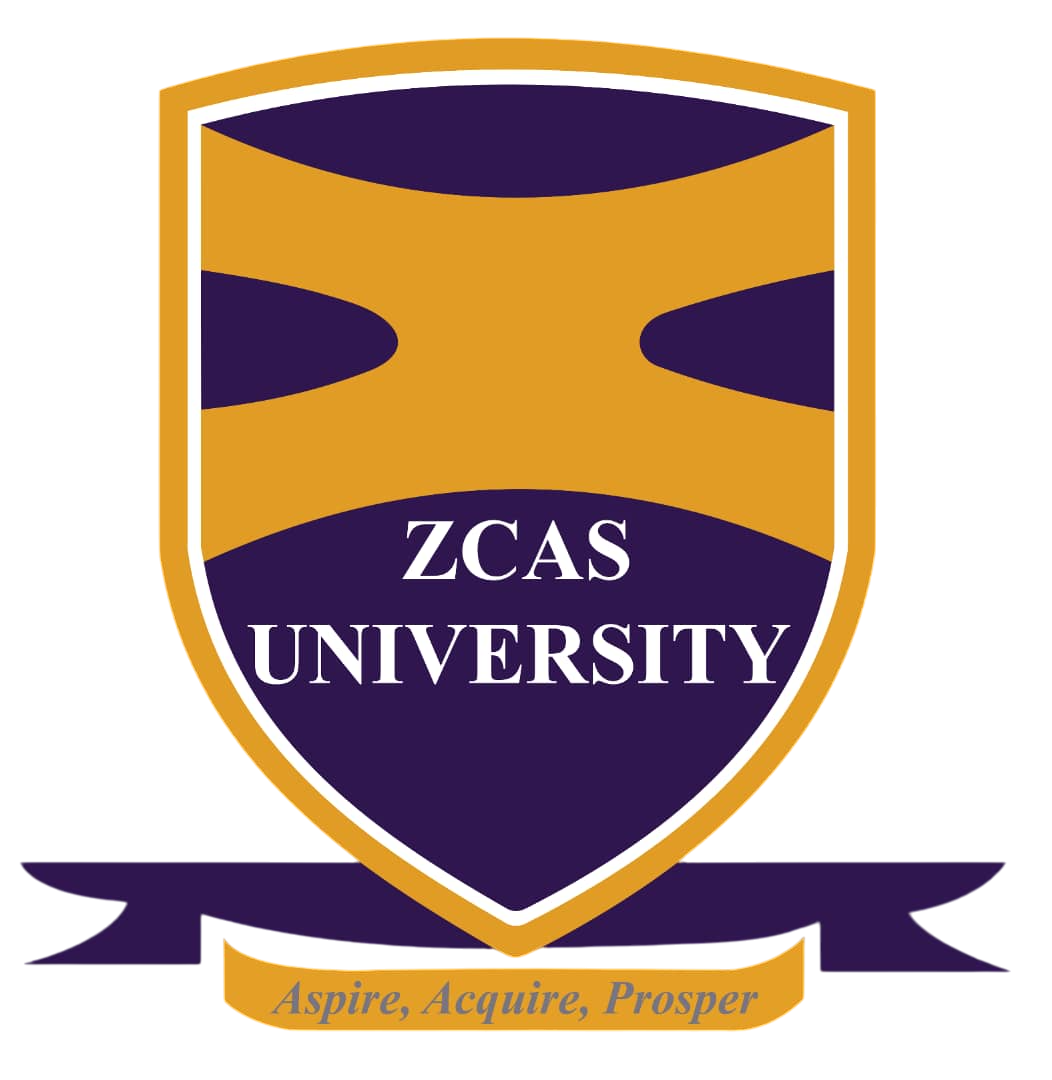INTRODUCTION
This programme brief summarises the contents of the Master of Science in Project Management (MPM) degree programme and is accordingly structured as follows. The programme aim, rationale and objectives are outlined in Sub-sections 1.1 to 1.3 respectively, while the eligibility, regulations and conferment are given in Section 2.0. Sections 3.0 – 5.0 describe the course assessment, exemptions policy and course codes respectively. The programme structure is outlined in Section 6.0.
AIM
To equip students with knowledge and skills in the field of Project Management and pedagogy, and further develop their competences in order to prepare them to handle projects of various magnitude and complexity in any career field such as construction, information technology, livelihood, and capacity building, among others.
RATIONALE
In the recent past, Zambia, like many other developing countries, has experienced a growth in developmental projects across the country, including the road construction sector, building, information technology, NGOs’ project delivery in the communities, and many others. The Government’s intention of opening up the country through road accessibility, building of provincial and district headquarters, hospitals and clinics and the opening of new universities has turned the country into a hub of construction. Most of the projects are undertaken by foreign companies with little participation by local ones. The lack of participation in these and other projects has largely been blamed on the lack of skills by indigenous Zambians to ably undertake and manage projects of this nature. The Master of Science in Project Management (MPM) programme has been mooted with this in mind and is meant to produce qualified project and programme managers who can effectively participate in various developmental projects.
The demand for qualified project managers is also noted to have been accelerated by the number of donor projects that Zambia and Africa at large are receiving. The critical shortage of skilled Project and Programme Managers has meant that many projects have ended up being mismanaged, thus leading to huge resources being lost and some projects being abandoned.
OBJECTIVES
By the end of the programme, candidates should be able to:
- Demonstrate a thorough grounding in the fundamental theories, concepts, principles and practices of Project Management.
- Demonstrate critical abilities of analysis, interpretation, evaluation and judgement in the field of project management.
- Apply the knowledge and key skills acquired to successfully manage projects and portfolios of projects.
- Challenge and extend their knowledge and practice in this business–critical profession.
- Demonstrate the knowledge and skills required to effectively manage project resources, anticipate and mitigate risks, monitor, evaluate and report on project performance.
- Recognise the diversity and complexity of projects, programmes and portfolios in organisations outside the traditional “project management” sectors.
ELIGIBILITY
The following shall be eligible to apply for admission to the Master of Science in Project Management degree:
- Graduates of degree programmes who have been admitted to the appropriate degree of Bachelor with at least a credit.
- Graduates of recognised universities who have been admitted to the appropriate degree of Bachelor with at least Second Class (Upper Division) Honours.
- Graduates of a sufficiently adequate standard who shall have demonstrated competence to undertake this postgraduate programme.
- Applicants with sufficient requisite working experience and in exceptional circumstances, are holders of a pass degree or its equivalent will be considered for admission on the MPM
- Holders of full professional qualifications such as ACCA, CIMA, ZICA, CIPS, CIM.
REGULATIONS GOVERNING THE AWARD OF MSc DEGREE
Duration of study
The course of study for the award of the MPM degree shall be completed in a period of not less than 18 months and not more than three years.
Student progression
The Programme of study shall be taken in the sequence approved by the ZCAS-U Senate.
Evening and distance education (DE) students
- Every semester, an evening or DE student shall register for and take three courses, provided that a student may in exceptional circumstances be permitted to take one additional course whether carried over from the previous academic year or additional in any one semester.
- An evening or DE student who passes all the courses taken during the semester of study shall be allowed to proceed to the next level of study.
- An evening or DE student who fails in one or two or three courses in any semester may be permitted to proceed to the next level of study; provided that the student repeats the course(s) at the first available opportunity.
- No evening or DE candidate shall be permitted to proceed to the independent study (consultancy project/dissertation) of the degree programme unless he/she has satisfied the requirements of the course-work.
Part time students
- Every semester, a part time student shall register for and take up to three courses.
- A part time student who passes all the courses taken during the semester of study shall be allowed to proceed to the next level of study.
- A part time student who fails in one or two or three courses in any semester may be permitted to proceed to the next level of study; provided that the student repeats the course(s) at the first available opportunity.
- No part time candidate shall be permitted to proceed to the independent study (consultancy project/dissertation) of the degree programme unless he/she has satisfied the requirements of the course-work.
Deferred and supplementary examinations
Deferred Examinations
A student who is unable to attempt a scheduled assessment may be awarded a deferred assessment subject to a successful application based on extenuating circumstances. A deferred assessment shall be graded normally, i.e. the student shall be awarded the actual mark obtained in the assessment or a final grade of between D and A+ in the course.
Supplementary examinations
A student who has failed a course with a D+ grade may be awarded a supplementary examination in the failed course, provided that the student has passed the continuous assessment for that course. Supplementary examinations may be awarded in up to two courses in any semester of an academic year. A supplementary examination is marked on a pass/fail basis.
COURSE ASSESSMENT
Various summative and formative assessments will be used on this programme depending on the nature of the course. These include assignments, group reports, individual reports, projects, tests, final examinations, quizzes, virtual class forum discussions, essays and case studies.
GRADING
To be eligible for the award of the MSc degree, a student must have:
- Passed all the nine Courses.
- Adhered to the requisite course combinations in each semester.
In the grading of final examination results, the following scale will apply:
CLASSIFICATION OF THE DEGREE
- In calculating the grade of the degree, the following points shall be applied to the grades obtained.
- A+ 6 points
- A 5 points
- B+ 4 points
- B 3 point
- C+ 2 point
- C 1 point
- The grading of the MPM is based on all grades obtained in all the nine courses on the programme. No points are awarded where a course has been repeated.
- The points for classification of the degree shall be as follows:
Distinction 38 – 54 points
Merit 27 – 37 points
Credit 16 – 26 points
Pass 0 – 15 points
EXEMPTIONS
There shall be no exemptions from any course, regardless of a candidate’s qualifications.
PROGRAMME STRUCTURE
Each year of study will be divided into two semesters. The courses are structured in such a way that semester one courses are not a pre-requisite of semester two courses in each academic year. The course structure is as shown in Tables 1 and 2 below.
| Semester 1 | Semester 2 | ||
| Course Code | Course Title | Course Code | Course Title |
| BBA5101 | Graduate Research Methods | SMS5792 | Project Risk Management, Exit and Sustainability |
| BBA5201 | Strategic Procurement | SMS5772 | Strategies Strategic Project Organisation and Design |
| SMS5461 | Strategic Leadership | SMS5782 | Project Implementation, Monitoring Evaluation |
| Semester 1 | |
| Course code | Course title |
| SMS6701 | Managing Livelihood Projects |
| BBA6111 | Dissertation |
| One elective from: | |
| SMS6711 | Project Quality Management |
| SMS6721 | Managing Projects Using ICT Tools and Techniques |
FEES
You can download this ZCAS University Fees list by clicking on the link below:
You can view the bank details here:
Course Features
- Lectures 0
- Quizzes 0
- Duration 10 weeks
- Skill level All levels
- Language English
- Students 0
- Assessments Yes




